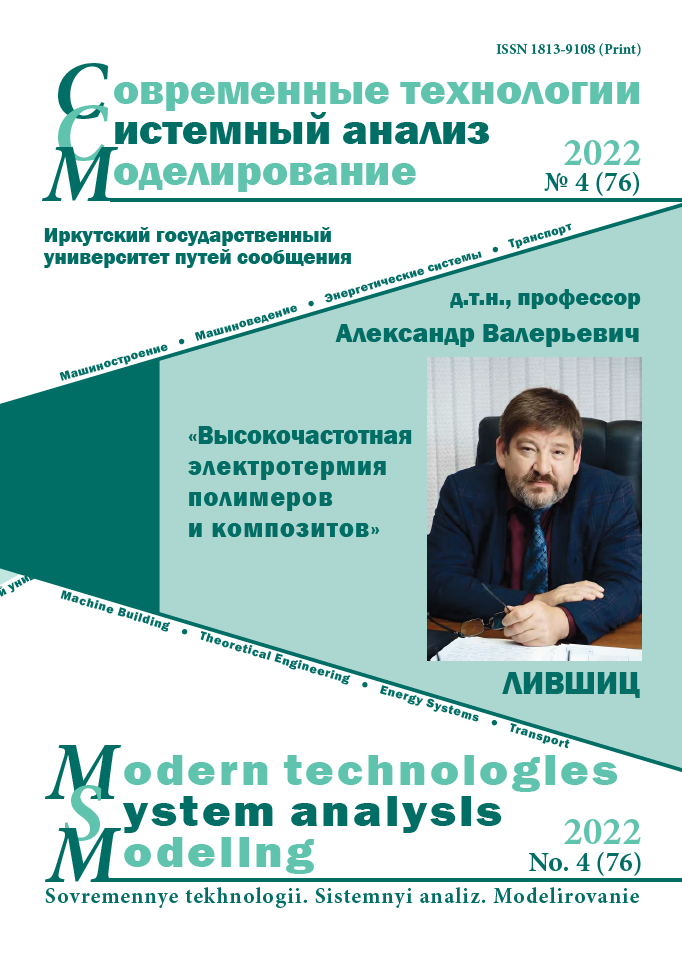Application of the Mamdani Fuzzy Logic Algorithm for the Selection of Players for a Football Club at the Preseason Training Camp
Keywords:
fuzzy logic methods, Mamdani’s algorithm, football team, Matlab Fuzzy Logic Toolbox, term sets, fuzzy system operation rulesAbstract
The article deals with the selection of players for a football team in the context of solving the actual problem of selecting professional personnel in organizations and enterprises. The relevance of the mentioned problem is due to the unstable political situation in the world, economic reforms and social adaptation of graduates. The currently used well-known methods for improving the quality of selection, using, for example, an assessment of an employee's portfolio, do not fully solve the problem under consideration. In the digital age, this problem can be solved by various methods, thanks to which models are built that can give more accurate results. It is substantiated that as a possible tool for solving the actual problem of selecting players for a football team based on their characteristics, methods and algorithms of the fuzzy logic apparatus can be used in view of the high degree of fuzziness of the characteristics under consideration. Mamdani's fuzzy logic algorithm was chosen as the main research method, the constructed fuzzy model was tested and the results obtained were interpreted. The approach used in the study to the process of selecting players for a football team, based on the Mamdani fuzzy algorithm, will significantly increase the percentage of players most suitable for the club, giving a quick optimal answer. This circumstance will reduce the load on the head coach, freeing up additional time to develop a game strategy and organize the training process.
References
Численность выбывших работников с начала года // Витрина статистических данных : сайт. URL: https://showdata.gks.ru/report/273216/ (Дата обращения: 16.11.2022).
Никонорова А.В., Торопова Н.Н. Проблемы и способы повышения эффективности при осуществлении процесса отбора персонала // Вестник РГГУ. Сер. Экономика. Управление. Право. 2018. № 3 (13). С. 90–102.
Ибрагимов А.У., Ибрагимова Л.А., Караваева М.В. Оценка компетентности персонала торгового предприятия с использованием метода нечёткой логики // Вестн. Самар. гос. аэрокосм. ун-та. 2012. № 1 (32). С. 242–249.
Балашова И.Ю., Прошкина Е.Н. Анализ и моделирование рассуждений в интеллектуальной системе подбора персонала // Модели, системы, сети в экономике, технике, природе и обществе. 2018. № 1 (25). С. 80–88.
Football Player Selection Using Fuzzy Logic / M.B. Burhanuddin et al. // ASEAN Conference on Information System (ACIS2015). Malaysia, 2015. URL: https://www.researchgate.net/publication/324411729. (Дата обращения: 22.04.2022).
Леоненков А.В. Нечеткое моделирование в среде MATLAB и fuzzyTECH. СПб. : БХВ-Петербург, 2003. 736 с.
Штовба С.Д. Проектирование нечетких систем средствами MATLAB. М. : Горячая линия-Телеком, 2007. 288 с.
Болодурина И.П., Дусакаева С.Т. Введение в теорию нечетких множеств и систем. Оренбург : ОГУ, 2021. 172 с.
Белозерова Г.И., Скуднев Д.М., Кононова З.А. Нечеткая логика и нейронные сети. Ч. 1. Липецк : ЛГПУ. 2017. 64 с.
Болдырев П.А., Дусакаева С.Т. Оценка конкурентоспособности продукта или услуги в условиях нечеткой информации // Роль инноваций в трансформации современной науки : сб. ст. Междунар. науч.-практ. конф. Уфа, 2017. Ч. 1. С. 113–118.
Болодурина И.П., Болдырев П.А., Дусакаева С.Т. Методы нечеткой логики при исследовании востребованности учебной литературы // Научное обозрение. 2015. № 14. С. 224–231.
Болодурина И.П., Дусакаева С.Т. Моделирование процесса принятия решений при открытии нового офиса продаж сотовой связи в нечетких условиях // Информационные технологии интеллектуальной поддержки принятия решений : тр. VIII Всерос. науч. конф. с междунар. участием. Уфа, 2020. Т. 1. С. 15–18.
Болодурина И.П., Дусакаева С.Т. Совершенствование управления востребованностью учебной литературы на основе применения модели Леунга разделения на зоны приоритетности дисциплин в нечетких условиях // Планирование, проведение и интерпретация научно-технических исследований : сб. ст. междунар. науч.-практ. конф. Казань, 2020. С. 6–10.
Duboi D., Prade H.M. Fuzzy sets and systems: theory and applications. New Jork ; London ; Toronto : Academic Press., 1980. 393 p.
The top 5 qualities to become a professional football player // The international center of European football : site. URL: https://europe.theicef.com/the-top-5-qualities-to-become-a-professional-football-player/ (Дата обращения: 16.11.2022).
Canever B. Lionel Messi: 5 Qualities That Make Him the World's Greatest Footballer // Bleacher Report : site. URL: syndication.bleacherreport.com (Дата обращения: 16.11.2022).
Барабанщиков В.А. Общая психология: психология восприятия. М. : Юрайт, 2022. 184 с.
Duboi D., Prade H.M. Possibility theory and formal concept analysis: Characterizing independent sub-contexts // Fuzzy Sets and Systems. 2012. Vol. 196. Рp. 4–16.
Duboi D. The role of fuzzy sets in decision sciences: Old techniques and new directions // Fuzzy Sets and Systems. 2011.
Vol. 184 (1). Рp. 3–28.
Зак Ю.А. Многокритериальные задачи математического программирования с размытыми ограничениями. Математические модели схем компромисса. Выбор решений из конечного множества альтернатив // Кибернетика и системный анализ. 2010. № 5. С. 80–89.
Киселев В.Ю., Калугина Т.Ф. Теория нечетких множеств и нечеткая логика. Задачи и упражнения. Иваново : ИГЭУ, 2019. 72 с.
Тихомирова А.Н., Клейменова М.Г. Нечеткие модели дискретной математики. М. : НИЯУ МИФИ, 2011. 108 с.
Хижняков Ю.Н. Алгоритмы нечеткого, нейронного и нейро-нечеткого управления в системах реального времени. Пермь : ПНИПУ, 2013. 156 с.
Хижняков Ю.Н. Нечеткое, нейронное и гибридное управление. Пермь : ПНИПУ, 2013. 303 с.
Бахусова Е.А. Элементы теории нечетких множеств. Тольятти : ТГУ, 2013. 116 с.
Зак Ю.А. Принятие решений в условиях нечетких и размытых данных: Fuzzy-Технологии. М. : Либроком, 2013. 352 с.
Frank H. Fuzzy Methoden in der Wirtschaftsmathematik. Braunschweig ; Wiesbaden : Vieweg & Sohn Verlag, 2002. 242 p.
Friedrich A. Logik und Fuzzy-Logik. Stuttgart : Expert Verlag, 2006. 319 p.
Тэрано Т., Асаи К., Сугэно М. Прикладные нечеткие системы. М. : Мир, 1993. 368 с.


